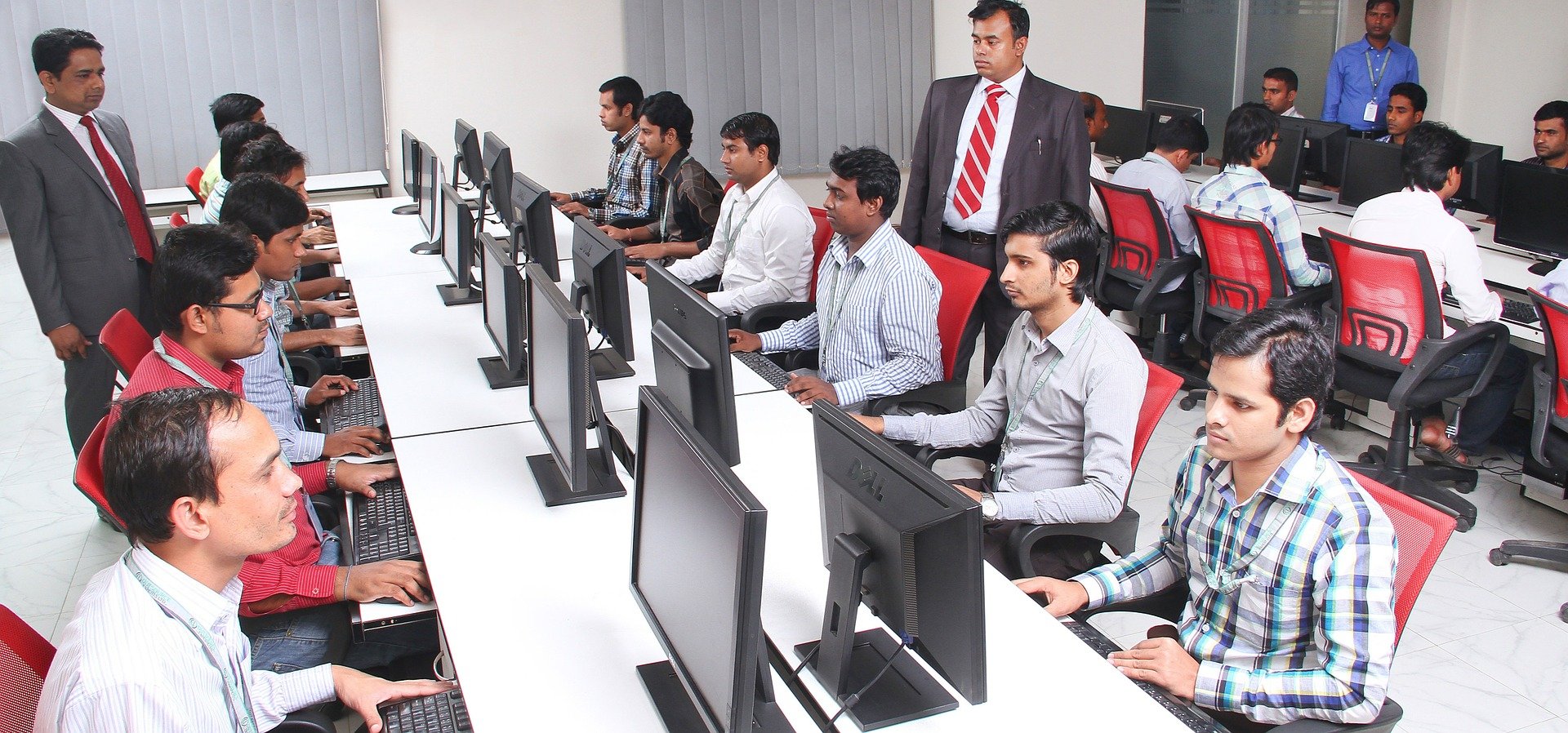In a period of unprecedented turbulence, we need impact-driven companies more than ever
The world is in a period of unprecedented turbulence.
From rising tensions between countries to food insecurity, a collaborative push to drive positive change is needed more than ever.
Just as important, it’s clear that we need impact-driven companies.
Although the actions of world leaders and governments will play a leading role in enacting policy changes, we also need to create more stable environments, and the role of business leaders and impact-driven companies here shouldn’t be undervalued.
These organizations are already acting as champions for positive change. From companies developing green solutions to reduce reliance on single-use plastics to the enterprise committed to progressive workplace practices, the actions of these companies can act as a powerful catalyst for change.
For instance, although a number of frameworks and structures exist to measure ethics and sustainability within companies, there isn’t a single, consistent or widely backed method. Environmental, social and governance (ESG) was long regarded as the method of choice to lead companies towards decarbonization and ethical decisions that put people over profit at all costs. For many years, this was an important point on the agenda at C-Suite meetings and an essential part of generating investor interest.
However, in the U.S., political resistance and regulatory pushback are leading to a slowdown, with some states actively discouraging ESG integration. Interest here peaked in 2023, after which its sharp decline began as the term fell out of favor.
Meanwhile, B Corp status has been one of the most recognized sustainability achievements for companies. Yet in June 2025, it was accused of “enabling greenwashing and purpose washing by multinationals”, in a move that could seriously undermine the credibility of B Corp status and public confidence in corporate sustainability efforts.
This is part of the reason why it’s never been more important to look beyond badges and awards and find real-world examples of companies that lead by example with unique and targeted solutions.
Here we shine a spotlight on some of the companies showing the variety of ways that companies can drive positive impact, with 10 impact-driven companies to watch in 2025.
Kintsugi Health tackles rising rates of mental health issues
The World Health Organization recently called for all countries to take urgent action against underfunded health policies and systems. This comes in the face of mental health conditions skyrocketing across all age groups.

Kintsugi CEO Grace Chang
Kintsugi is using technology to help improve access to effective mental health support through AI-powered voice recognition technology.
The company is comprised of passionate individuals united by a desire to improve access to mental healthcare. The company offers an API-first platform that uses novel voice biomarkers in speech to identify, prioritize, and care for mental health in real time.
Its AI-based voice biomarker has been trained to detect conditions like moderate to severe depression by analyzing records of patients and not only listening to what they are saying, but also what they are not saying.
By reading between the lines and analyzing the presentations of pauses, silences and other indicators, Kintsugi’s tool helps patients get the support they need.
Viking Pure Solutions addresses plastic waste across the B2B supply chain
ESG leaders in healthcare, education and hospitality face unique challenges in today’s landscape.
Navigating the complex regulatory landscape, effectively managing their supply chain, and adopting green technologies and sustainability improvements while balancing costs are all areas where healthcare leaders look for innovations and opportunities.
Viking Pure Solutions is drastically reducing reliance on single-use plastics across the B2B supply chain by installing machines on site that allow organizations to produce their own cleaning solutions and disinfections using only water.
What’s more, the company is helping to tackle antimicrobial resistance and reduce our reliance on harsh chemicals that end up polluting our rivers and environments. Recent studies have found some adults could potentially be consuming between 39,000 to 52,000 microplastics particles a year on average.
While plastics come from many sources, the company offers an immediate solution for the cleaning supply chain to eliminate single-use plastics.
Trapets confronts financial crime and money laundering
Financial crime is a worldwide issue. From corporate fraud to tax evasion or even money laundering for some of the most nefarious criminal activity, this is an area that has a huge amount of secondary impacts and victims.
Trapets is on a mission to tackle this issue. The company provides businesses with technology and knowledge for successful anti-money laundering. As criminal tactics evolve and digital environments grow more complex, the need for smarter, forward-thinking compliance becomes clearer.
By combining expertise, technology and a clear understanding of regulations, companies can stay ahead, strengthening trust, supporting growth and building a more secure future.
Transmetrics: Harnessing AI for engine sensors
Transmetrics harnesses AI to analyze telematics and engine sensors, so data like tire pressure, load weight, terrain, and driver behavior, to optimize fleet operations. It uses this data to recommend fuel-efficient routes and better match load to capacity to reduce empty miles.
The AI logistics solution provider helps carriers save one gallon of fuel every 189 miles. Across the 3.5 million truck drivers in the U.S., each logging around 715 miles daily, that translates into over 13 million gallons of fuel saved annually.
More recently, the company has been involved in creating analytics-powered driver training and incentive systems for their clients to help reduce idling, promote progressive shifting, and encourage safe, fuel-efficient driving.
360 Health Data: Free tech platform for doctors
The COVID-19 pandemic showed us how healthcare is a shared, global responsibility. This means improving patient care and democratizing access to quality health solutions worldwide is a key way to deliver a positive impact.
360 Health Data was launched by a group of industry veterans on a mission to create a resource platform that connects Spanish-speaking clinicians in Latin America with high-quality medical knowledge.
Here, the platform aims to empower healthcare professionals across South America by harnessing the vast potential of scientific research and Real-World Evidence (RWE) to foster informed decision making and advance the field of medicine
By leveraging advanced technology and a deep understanding of the local healthcare landscape, 360 Health Data is dedicated to supporting doctors in delivering the highest quality of care.

360 Health Data’s Manuela Gutierrez
Fracttal partner with Gravity Wave to address waste
According to Spanish tech startup Fracttal, 8 and 12 million tons of plastic end up in the oceans every year. This damages marine biodiversity and entire ecosystems.
Further, 40% of this waste comes from fishing nets and gear, known as “ghost nets.” These are not only abundant but also extremely difficult to recycle.
To tackle this serious problem, Fracttal partnered with Gravity Wave in 2025 to address the issue from a circular economy perspective.
The initiative will collect plastic waste from the Mediterranean sea and transform it into an opportunity to build a more sustainable future, using Gravity Wave’s blockchain technology to guarantee the traceability of cleanups.
ManagedMethods keeps student data safe and protects children from online harm
Despite the huge potential technology brings, it also comes with significant risks, particularly for vulnerable populations.

ManagedMethods CEO Charlie Sander
ManagedMethods is helping to safeguard children through tools and features that are straightforward and affordable for K-12 educational institutions to adopt.
On the one hand, the company offers improved protection against cyberattacks with a number of advanced solutions that have been custom-built to tackle the typical threats that schools face in attempts to steal the sensitive data of students or hold schools to ransom.
In addition, the company is helping teachers create their own guardrails when using technology in the classroom that allow them to control the content students can view during lessons to keep them focused and ensure they don’t view sensitive or inappropriate content.
Source Meridian creates stable employment opportunities for tech community in Ecuador
Source Meridian is a software company that specializes in big data, BI and ML solutions running on commercial clouds, from the development of new web applications, through updating, management, maintenance and enhancements, we cover all stages of the application lifecycle.
The company demonstrates a commitment to security and data protection, SOC 2 and builds workflows that are HIPAA and CCPA compliant.
The organization has a strong customer base in the U.S. but founder Mike Hoey has strong ties to South America, seeing this is a key way to support job creation. The company has a long-established presence in Colombia with offices in Medellín and Rionegro.
In 2025, the company announced a new offices in Quito, Ecuador to create stable employment opportunities for the tech community in Ecuador and drive real impact.
Spaceflux cleans up our orbit and tackles space waste
When we think of waste and debris, we often think of the massive landfills on Earth. However, we’re quickly creating a similar problem in our own orbit as the rising number of satellites contributes to space waste and debris that could have unknown and uncontrollable consequences in future.
UK company Spaceflux offers a global network of optical sensors for Space Situational Awareness.
By identifying and tracking satellites and space debris, the system prevents collision and contributes to the long-term sustainability of Earth’s orbit.
With space debris becoming a real crisis, threatening global communications, climate monitoring, and even planetary defense, their work has never been more critical. As such, the company has secured multimillion-pound contracts with the Ministry of Defence, UK Space Agency (UKSA), and the Defence Science and Technology Laboratory (DSTL).
They’ve also gained support from Europe’s prestigious SpaceFounders accelerator and are now building what could become the largest optical telescope network of its kind.
Nisum and DSB Technology tackle world’s most pressing challenges
In additional space work, Nisum and DSB Technology are partners in laying the groundwork for bold, cross-sector breakthroughs, solving real-world problems with accelerated innovation where industries need it most—from medicine to mining to missions beyond Earth.
Through advancements in medical research, precision medicine, and biotech innovation, Nisum and DSB Technology are helping shape the future of healthcare.
This strategic union also fuels innovation across industries such as pharmaceuticals and mining—leveraging AI, data-driven insights, and advanced digital solutions to boost operational efficiency, accelerate decision-making, and solve complex challenges.
VaxThera supporting the biotech community in Latin America
Latin America is seeing growing investment and development in the biotech sector, particularly in agricultural and pharmaceutical applications. While traditionally lagging behind in deep tech, the region is experiencing increased private investment and is becoming a hub in this industry.
VaxThera is a biotechnology company that seeks to transform science, research, and development into benefits that contribute to improving the quality of life in Latin America and offering the region the healthcare independence it needs to confront future diseases.
Compocity: Advancing the circular economy
A company’s carbon footprint is a measure of the total greenhouse gas emissions caused by its activities, both directly and indirectly. This includes emissions from energy consumption, industrial processes, transportation, and the entire supply chain.
Compocity’s goal is to reduce the carbon footprint of companies, along with climate anxiety.
The business has built its whole ecosystem in this spirit, and also to make sure that the produced compost nourishes urban green spaces – all of this for the sake of circular economy.



